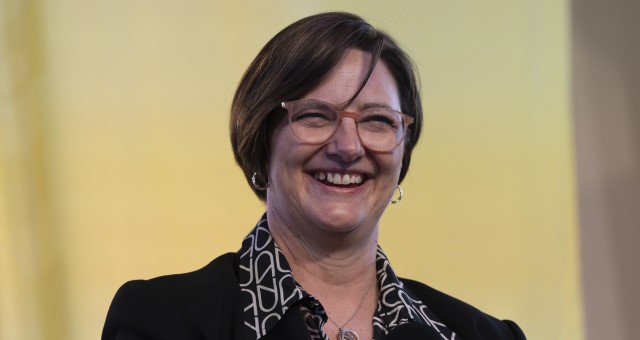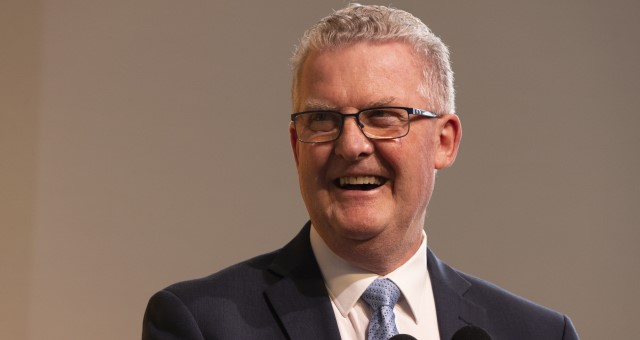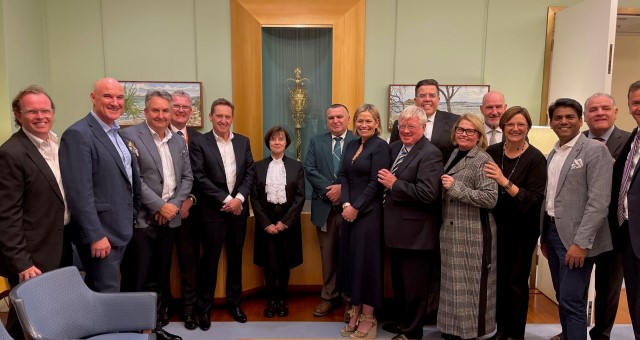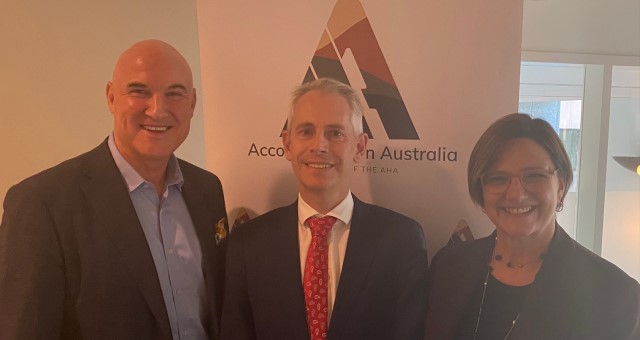Nearly six months on from the formation of Accommodation Australia – an amalgamation of the Accommodation Association and Tourism Accommodation Australia – CEO Michael Johnson spoke to HM’s Ruth Hogan about what has been achieved this year and what’s top of the agenda for 2024.
It’s nearly six months since Accommodation Australia began. Has that united industry voice proven a greater advantage when dealing with government on major issues?
I think it definitely has. In the first 90 days, we set up state advisory committees in every state and territory for the accommodation sector. They now report back, through their minutes and through my involvement, to the national board, so we’ve got a very good link to all the states and territories and what their major issues are.
When you start working with the strength of the state and territories as a national body, you can really make a difference. I think that was very evident with the recent issue of the proposed tourism levy in Victoria. There was a real multi-pronged approach in addressing that.
How did you go about tackling the Victoria tourism levy issue?
Initially, there was a very straightforward direction from the National Board to say this is a major concern and needs to be top of the list. I was very quick to start working closely with our Accommodation Association manager in Victoria, and our AHA CEO in Victoria. And then along with policy and research within Accommodation Australia, we had everyone working on it.
At the same time, in August, we had the Victorian Accommodation Awards for Excellence. We had politicians from all parties in the ballroom and so, in our Chair’s speech to the 1000 attendees, we were able to reiterate that the lack of available housing was not to do with accommodation hotels, quite the opposite.
We succeeded in that the levy of 7.5% is specific to short-term rental accommodation and not on all accommodation, which was originally proposed, which was a great win. That’s not to say it’s not still a watching brief, because it comes into play January 1, 2025, and we are continuing to work with the Victorian Government – we’re still very involved.
Beyond Victoria, this issue appears to be affecting every state right now. Is that what you’re seeing?
Certainly. Twelve months ago, right around the country, the number one issue was labour and skills shortages. Today, we’ve had that reprieve, but the problem we’ve got is where do we house these people, particularly in the regions. This is why the affordable and available housing component for state and territories is so critical, and we’re helping them with policy and supporting with respective roundtables and tourism advice.
I’ve had meetings with the federal housing minister to say it’s a major concern, and she was really pleased to show me that affordable housing, including short-term rental accommodation, must be reviewed by every state and territory. It’s fantastic that we are seeing every state and territory taking a serious look at this. We’ve just had a 90-day cap [on development approval for short-stay accommodation in the Perth metro area] announced in Western Australia, as well as a AU$10,000 incentive for Airbnb hosts to put their properties back into the long term market for at least a period of 12 months, which is quite incredible.
There’s still room for short-term rental accommodation, no one wants to get rid of it, it just needs to be regulated. We’ll be working hard on that next year, because as each state does something, every other state is watching.
As you mentioned, it’s not that long ago since the industry was grappling with a major staff shortage. How has that improved this year?
We’ve been able to get working holidaymakers back to the level that they were before [the pandemic], and we’ve had some really good discussions with Home Affairs to ensure that that those numbers continue. The Free Trade Agreement with the UK comes into play next year.
We’re still working closely on some of these migration reforms, as international students still play a critical role in our industry. Whilst the cap had to go back on this year, it’s still a generous cap of 48 hours, as opposed to what it was pre pandemic. We’ve had some really good wins.
Tell us about the recently announced AU$10 million government grant to create a one-stop digital hub for hospitality, tourism and travel.
This grant for hospitality, tourism and travel is all about careers. It’s going to have mentors, training programs, jobs and employers. I call it the ‘superhighway’ for our industry. Career advisors in schools can direct young people to this platform to find all the information about these career paths, and the training required. It’s a great opportunity for our industry. I get very excited about it because I think it’s a game changer and a big thank you to the Albanese government for this opportunity. It will hopefully be in market in Q3 2024 as the project team and advisory boards contribute to its development and implementation.
Diversity and inclusion have been a big focus of the new association. Can you share an insight into the approach taken?
We are an association of inclusion that’s very much looking to ensure that no cohort is left out of the work that we’re doing.
We’re working closely in the accessible space. You’ve got 20% of Australians with a disability – it’s a huge amount – and as the demographics of Australians change, and we have this very big Baby Boomers cohort that are retiring with sport injuries and perhaps declining eyesight, all these elements [must be considered].
We’re trying to get that balance in gender as well, whether it be in conferencing through our Panel Pledge [to ensure greater female representation], but also within management, ensuring that we’re actively involved in that.
With regards to our state advisory committees, we’re insisting on diversity within these committees – and that’s diversity across the industry. We have a combination of perspectives, including the major five-star brands but also representatives for motels and independent hotels.
When it comes to room rates and occupancy levels, what’s your outlook for next year? Are there any cities that are looking particularly strong or some that will face challenges?
Sydney is starting to get back to pre-pandemic occupancies – in the 80%s range, which is great. I think Sydney will continue to grow. Melbourne is probably our most difficult city and it’s because it’s had a 25% increase in rooms in the last three years. It’s a good thing in that it’s got outstanding quality accommodation, but occupancies are sitting in the mid-60%s at the moment.
We still have some concerns around airline movement and capacity restrictions with regards to Northern Territory. We’re really thrilled that government has now re-initiated the ACCC to investigate what’s happening on the domestic airline front, because Australians are paying too much, and it is having a detrimental effect on hotels.

What else is on the agenda for Accommodation Australia next year?
I think for 2024, the other focus is the Workplace Relations (closing loopholes bill), which is a very hot topic at the moment for Tony Burke MP and his office. They were trying to get the bill through the Senate this year, it’s partially happened now but the rest has been moved to February now, so there’s a lot of debate within industry groups with regards to this bill.
We have been liaising with Minister Tony Burke’s office in conjunction with AHA and we’ve had some successes just recently with that, particularly when it comes to casuals and hospitality, and a big thank you to the AHA’s Stephen Ferguson for his role there.
The other one that is always on our list is demand for hotels. We’ve had 20,000 rooms open around the country [since the end of 2020], which is quite phenomenal, and we’ve got a lot more hotels in the pipeline for the coming year. We’ve got to ensure that demand is there. We did a lot of work with federal government on Australia securing approved destination status for Chinese groups to come back, and we’ve recently had the announcement of [multi-entry] visas between China and Australia. When you’ve got such a big market like China, it’s very hard to replace, and the pent-up demand in China is still there.
We’re seeing business events and international conferencing coming back as well. We’re hopeful that next year we’ll have a big year. As for major events, we’ve just had SXSW Sydney for its first year and that’s only going to grow.



